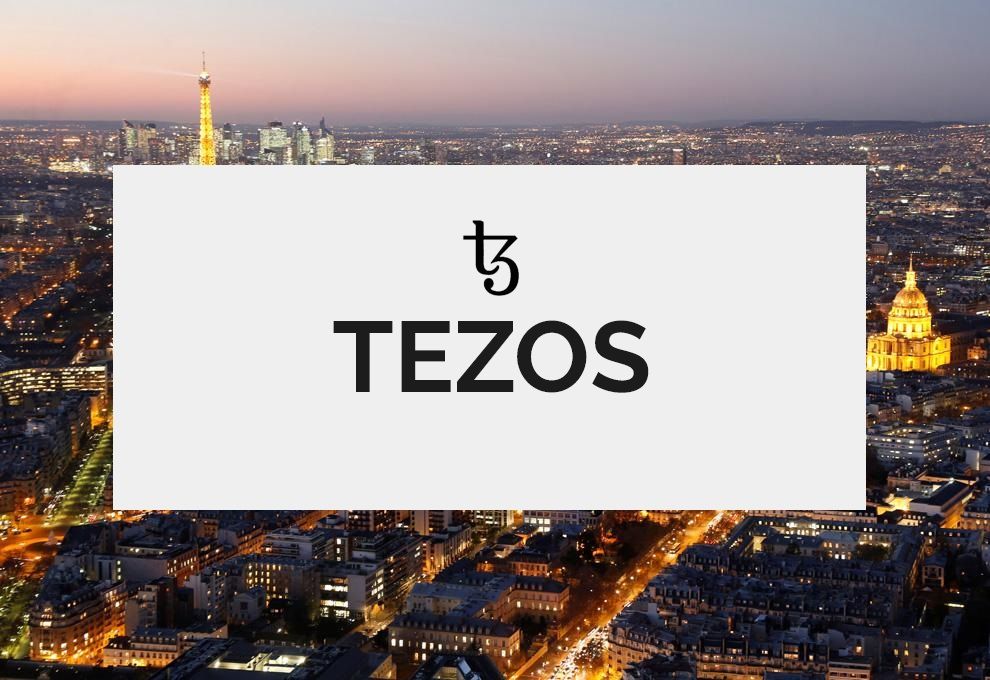Hi investors, Dan (@tradealert) and Dean (@deanliu) are back for our weekly feature and today we’re taking a look at the much anticipated (and much delayed) Tezos project. Full disclaimer, this review is partly based on this forum discussion but tries to expand on it while simplifying the content to make it more accessible to non-technical users and also provides insights for potential investors in the project.

In this article we will provide you with a technical overview of the project (I), then we’ll go over the risks associated with investing in Tezos (II).
I- In a Nutshell.
Much like Ethereum, Tezos is a permission-less decentralized smart contract platform built on top of a blockchain. Unlike Ethereum though, Tezos differentiates itself with regard to : governance (I), smart contracts (II) and consensus (III).
Governance.

Governance is one of the most critical issue faced by developers when creating a decentralized network.
A bad governance system leads to community splits and hard-forks much like we saw when Ethereum and Ethereum Classic parted ways as the result of the DAO hack. A good governance system however allows a community of users to solve their differences on chain while maintaining the cohesion of the community and thus preserving the value of the network itself.
Tezos’ original solution to the governance problem was one of its main selling points back in the summer of 2017 when their ICO took place.
Tezos’ ledger is self-amending, meaning that it aims at avoiding hard-forks by allowing the network to upgrade itself. In practice, stakeholders will be able to vote on proposals to modify the rules of the network, the consented solution will then be elevated to become the new test-net and after a vetting period, the test-net will become the new main net.
While elegant, this solution is not without problems on its own. Firstly, how do you make sure that the people who are the most qualified to vote on rule changes get the loudest voice in the system? Second, how do you combat proposal spamming and make sure voters are correctly incentivized to participate in the governance of the network?
Arthur Breitman (CTO of the project), suggested that Tezos might include a system of vote delegation, allowing small, non-technical users, to delegate their voting power to larger stakeholders similar to the concept of liquid democracy. While this seems like a step in the right direction, it will be interesting to see how that governance model pans out once the network starts gaining maturity and economic significance.
Smart Contracts.

Unlike Ethereum which allows any type and size of computation to run on top of its network, Tezos assumes that most smart contracts only need to deal with very simple business logic (IF…THEN…ELSE) while most complex computations can be performed off-chain by specialized apps.
Consequently, Tezos focuses on guaranteeing the good execution of this logic by providing a base programming language (Michelson) which allows for formal verification.
Formal verification is the process by which a code can be audited to make sure that it will produce outputs as intended. Formal verification is typically required in industries where code is critical and needs to produce output reliably (think: NASA, aeronautic, medical technology, etc.).
While Ethereum uses Solidity, an inclusive programming language designed to resemble JavaScript and appeal to a wide audience of developers, Tezos sets the barrier to entry to coding on their platform higher and position itself as a more secure alternative likely to foster the creation of a community of expert smart contract coders.
Consensus… and Baking.

Tezos will rely on proof of stake (POS) to assure consensus within the network. You can think of POS as “virtual mining” where participants in the network stake a number of their tokens in exchange for the opportunity to become block validators and participate in creating the blockchain in a process called baking.
In Tezos, block validators are randomly selected by the network and rewarded for “baking” (validating) a block in proportion to the size of their stake. In simple terms: the more you stake, the more you bake. Right now, there is some uncertainty about the minimum number of tokens that will be necessary to start baking solo on the main net (possibly 10,000 tokens) but it’s likely the network will allow for token delegation, meaning that users can combine their holdings to start baking blocks and share the rewards in proportion to their holdings.
If you’d like to experiment with baking on the alphanet, you can learn how to do so there.
II- Project Development and Investment Risks.
For a project focused of revolutionizing blockchain governance, the development of Tezos was (quite ironically) marred with drama and conflicts revolving around the (thankfully) former head of Tezos Foundation and Tezos community’s most reviled villain: Johann Gevers.
But with the shenanigans now likely in the rear-view mirror, the project is likely to launch sometimes this year and with the full support of the Tezos Foundation (fingers crossed).
If you missed the crowd-sale, right now your only available option to buy Tezos tokens (XTZ) is on HitBTC in the form of IOU tokens. Those are currently valued at around $4.2 but we strongly encourage you to wait for the “real” tokens to hit the exchanges if you are looking at investing in Tezos. First because IOU markets are very speculative, don’t really represent the market value of an asset and tend to have their own independent dynamic. Second, because ICO price was under $1 so it’s likely XTZ tokens will be priced at that value on exchanges once they are listed.
The Tezos drama has also attracted lots of bad press and even a few lawsuits directed at Tezos, combine that with the fact that XTZ tokens likely are securities which were (partly) sold to US investors and you have got yourself a regulatory risk.
This risk could manifest itself in two forms: first, Tezos could struggle to get their token listed on centralized exchanges that have US customers (which include most big exchanges); second, in the worst case scenario the SEC could order Tezos to implement a rescission of their investment to ICO contributors.
The latter, although very unlikely in our opinion (the Tezos foundation which holds the tokens if based in ICO-friendly Switzerland), would be truly catastrophic for the project because a rescissions would involve long and costly legal procedures together with the practical difficulties of refunding investors plus the burden of having to raise funds again.
Again, these risk will not necessarily materialize bu as investors it’s helpful to undertand the full scope of your investment before jumping in.
If you’d like to know more about the project we recommend you read their whitepaper, visit the Tezos’ subreddit and follow Arthur Breitman’s YouTube channel.
So that’s it for today and we sure hope you’ve learned something new. Don’t forget to re-steem, upvote and follow @tradealert and @deanliu if you like our featured content.
Cheers,
Dan & Dean.
This page is synchronized from the post: ‘TEZOS: The Self Amending Smart Contract Platform.’